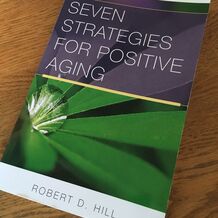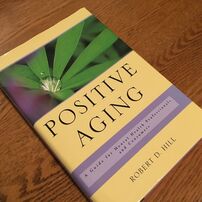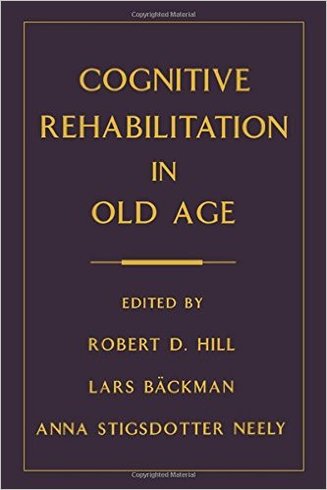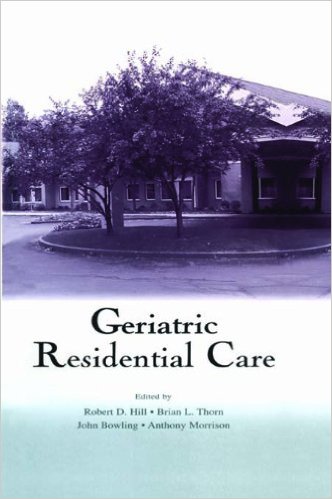My Books
Below are a few of the books I have published or have co-authored. You can click any of the links if you wish you find out more.
Seven Strategies for Positive Aging

Seven Strategies for Positive Aging by: Robert D. Hill, Ph.D.
The book presents an approach to aging that promotes well-being later in life.
The seven strategies include:
Positive Aging is remaining optimistic even during challenging times.Dr. Hill draws on examples of real people, providing models to follow. Filled with effective skill-building techniques, and based on research on the psychology of aging, Seven Strategies for Positive Aging is a great companion for those wanting to implement strategies that will assist with daily growth and living.
For an overview and quick summary of each chapter, go here.
The book presents an approach to aging that promotes well-being later in life.
The seven strategies include:
- Discovering meaning in old age
- Realizing you are never to old to learn
- Using the past to develop wisdom
- Enhancing life-span relationships
- When you give (and receive) help, you foster growth
- Forgiveness can actually promote emotional and spiritual healing
- A grateful attitude can be developed
Positive Aging is remaining optimistic even during challenging times.Dr. Hill draws on examples of real people, providing models to follow. Filled with effective skill-building techniques, and based on research on the psychology of aging, Seven Strategies for Positive Aging is a great companion for those wanting to implement strategies that will assist with daily growth and living.
For an overview and quick summary of each chapter, go here.
Positive Aging

Positive Aging: A Guide for Mental Health Professionals and Consumers by: Robert D. Hill, Ph.D.
Human aging has been transformed in the 21st century. Retirement, senility, disability, and death were all notions previously associated with growing old. Today, with the average life span of men and women in the United States exceeding 76 years, the words successful, optional, and positive dominate the lexicon of scientists and, increasingly, the general public. We not only plan to live longer, but expect to enjoy a superior standard of physical and emotional health. With these changing attitudes comes the need for new ideas of what it means to grow old. Positive Aging: A Guide for Mental Health Professionals and Consumers covers these particular topics and more.
Human aging has been transformed in the 21st century. Retirement, senility, disability, and death were all notions previously associated with growing old. Today, with the average life span of men and women in the United States exceeding 76 years, the words successful, optional, and positive dominate the lexicon of scientists and, increasingly, the general public. We not only plan to live longer, but expect to enjoy a superior standard of physical and emotional health. With these changing attitudes comes the need for new ideas of what it means to grow old. Positive Aging: A Guide for Mental Health Professionals and Consumers covers these particular topics and more.

